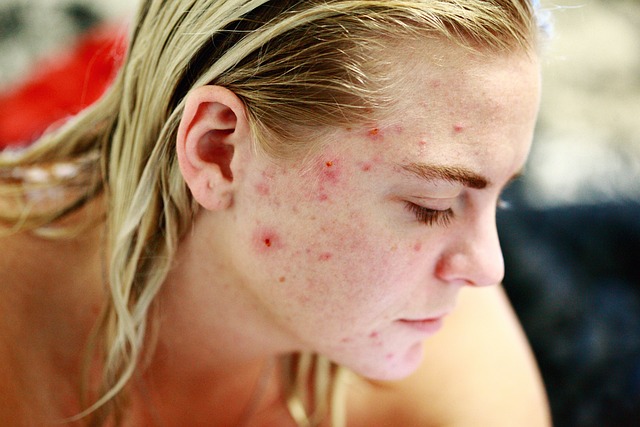
Hormonal acne is a common skin condition characterized by breakouts that occur in response to hormonal imbalances in the body. Unlike other types of acne, hormonal acne is often seen in adults and can be persistent. Understanding the causes and treatment options for hormonal acne is crucial for effectively managing this condition and achieving clear skin.
Causes of hormonal acne
Hormonal Imbalances: Fluctuations in hormone levels, such as those experienced during menstrual cycles, pregnancy, or menopause, can trigger acne breakouts.
Androgen Activity: Androgens, including testosterone, stimulate the sebaceous glands, leading to increased oil production and clogged pores.
Stress and cortisol: Chronic stress can disrupt hormonal balance and increase cortisol levels, resulting in acne flare-ups.
Medications: Certain medications, such as hormonal contraceptives or corticosteroids, may contribute to hormonal acne.
Hormonal acne treatment options
Topical Treatments: Over-the-counter creams or gels containing ingredients like benzoyl peroxide or salicylic acid can help control acne.
Prescription Medications: Dermatologists may prescribe topical retinoids, antibiotics, or hormonal therapies (such as oral contraceptives or anti-androgens) to manage hormonal acne.
Professional Treatments: Procedures like chemical peels, microdermabrasion, or laser therapy can be effective in reducing acne and improving skin texture.
Lifestyle Changes: Adopting a healthy lifestyle, including a balanced diet, regular exercise, stress management, and adequate sleep, can help regulate hormones and improve acne.
Natural Remedies for Hormonal Acne
Tea Tree Oil: Apply diluted tea tree oil to affected areas, as it possesses anti-inflammatory and antimicrobial properties.
Evening Primrose Oil: Taking evening primrose oil supplements may help balance hormones and reduce hormonal acne.
Zinc Supplements: Zinc plays a crucial role in regulating hormone levels and can be beneficial for managing acne.
Herbal Supplements: Certain herbs like saw palmetto, vitex, or spearmint have anti-androgenic properties that can help combat hormonal acne.
Preventing hormonal acne
Maintain a Healthy Diet: Avoid high-glycemic foods, excessive dairy, and sugary treats, as they can trigger hormonal imbalances and worsen acne.
Manage Stress: Practice stress-reduction techniques such as meditation, yoga, or deep breathing exercises to keep cortisol levels in check.
Hormonal Balance: Consult with a healthcare professional to address underlying hormonal imbalances and explore potential treatment options.
Proper Skincare: Cleanse the skin twice a day with a gentle cleanser, use non-comedogenic products, and avoid excessive scrubbing or picking at acne lesions.
Skincare Routine for Hormonal Acne
- Cleanse: Wash your face with a mild cleanser twice daily to remove dirt, oil, and impurities.
Exfoliate: Once or twice weekly, use a gentle exfoliant to scrub away dulling dead skin and open up congested pores. - Moisturize: Use an oil-free moisturizer to hydrate the skin without clogging pores.
Spot Treatment: Apply an acne spot treatment with benzoyl peroxide or salicylic acid to target individual breakouts.
Sun Protection: Apply a broad-spectrum sunscreen with an SPF of 30 or higher to protect the skin from harmful UV rays.
By understanding the causes of hormonal acne and implementing effective treatment options, natural remedies, and preventive measures, you can regain control over your skin. Remember to consult with a dermatologist for personalized advice and to create a skincare routine that works best for you.
Note: This blog post provides general information and should not substitute for professional medical advice.